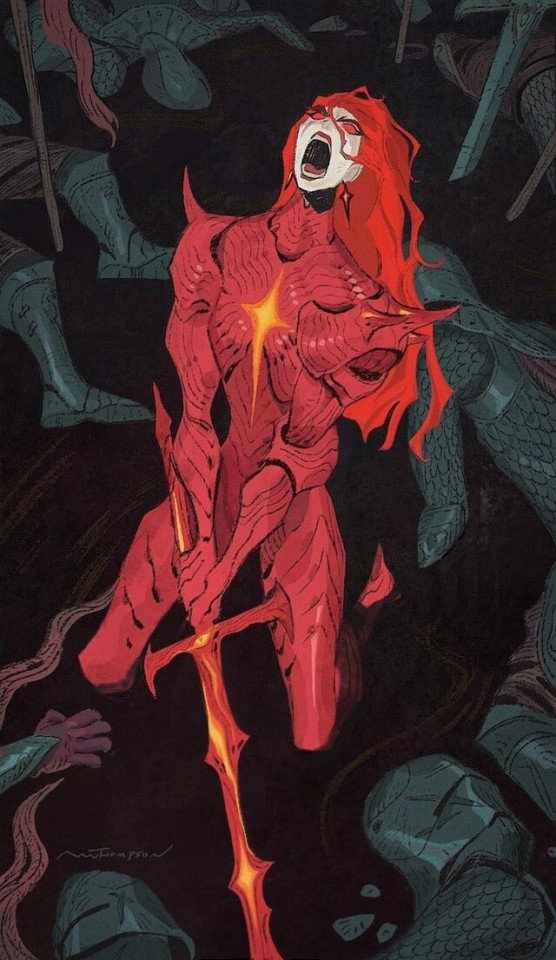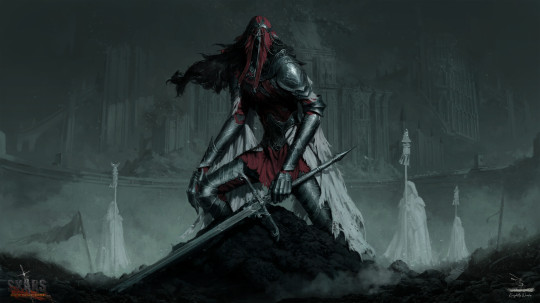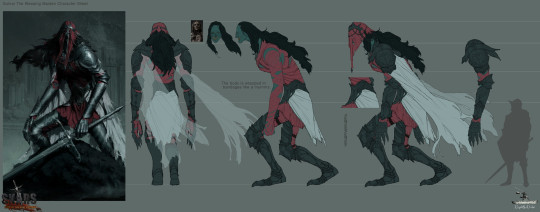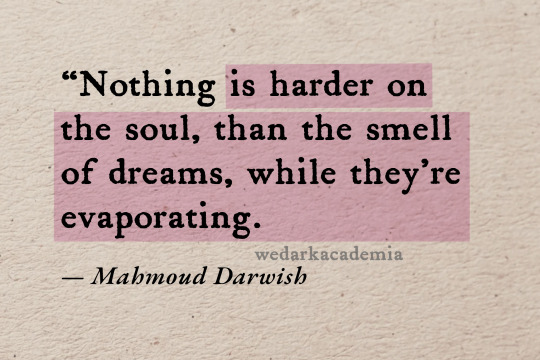Text

Another take on my Wings of Pages concept. This time it's drawn in Procreate instead of SAI.
The hardest part was writing all those words onto each page. It's 50% real text from books and poems and songs, and 50% chicken scratch lol
Older version of the same concept~

27K notes
·
View notes
Text
i am such a big fan of not knowing things. that is the allure of this life for me. there are so many things i will never know and so many things i will only somewhat come to know. i love mystery. there is power in secrecy
6K notes
·
View notes
Text

hey netizens! i'm not sure how many people are aware, but youtube's been slowly rolling out a new anti-adblock policy that can't be bypassed with the usual software like uBlock Origin and Pi-Hole out of the gate
BUT, if you're a uBlock Origin user (or use an adblocker with a similar cosmetics modifier), you can add these commands in the uBlock dashboard (under My Filters) to get rid of it!
youtube.com##+js(set, yt.config_.openPopupConfig.supportedPopups.adBlockMessageViewModel, false) youtube.com##+js(set, Object.prototype.adBlocksFound, 0) youtube.com##+js(set, ytplayer.config.args.raw_player_response.adPlacements, []) youtube.com##+js(set, Object.prototype.hasAllowedInstreamAd, true)
reblog to help keep the internet less annoying and to tell corporations that try shit like this to go fuck themselves <3
261K notes
·
View notes
Text


porcelain locket of a summer evening at the park in montreal
33K notes
·
View notes
Photo
Asuka is that you





Red Knight by Ami Thompson
30K notes
·
View notes
Photo





Light Studies by Kittichai Reaungchaichan
Follow us at Instagram for more art inspiration ♥ ♥
2K notes
·
View notes
Photo

We need your help.
I guess I will be taken to prison by Chinese government one day, because of this art I drew, or the things I said.
I am from Hong Kong. As you may not know, this is a special administration region of China. We (still) have our own legal system, and freedom of speech, that’s why I can access to everywhere in the internet without censorship (I get ask a lot). Recently, over a million of people are protesting against the Extradition Law. It was an extremely-almost-impossible fight and many students are injured horribly by the police force. I WAS THERE.
If the extradition law is passed, which means that China can “took” anyone from Hong Kong back to China as “prisoners”. Oh you don’t wanna know what China will do to those innocent people …
The government is forcing the law on us. We couldn’t do this on our own. We need more attention from other countries. Please spread this message out.
The Washington Post The Guardian Beautiful drone video captured on 9/6 & 12/6
_______________________________________________________ Reposting is welcome. I prefer NOT to credit me if you want to post it to somewhere else (especially Facebook). _______________________________________________________
15/6 UPDATE: One of our man just jump off from the roof - he suicided because of THIS.
His last words were “Full withdrawal of Extradition Bill. We are not rioters. Release injured students. Step down Carrie Lam. Help Hong Kong. No Extradition To China. Make Love No Shot.”
We are all heartbroken. You will be missed. R.I.P.

51K notes
·
View notes
Text
I’m Tired in French 🇫🇷
I’m a girl so I’m adding another “e” at the end!
We have SO many ways of saying that we’re tired cause we’re THAT dramatic hehe
~
Je suis fatiguée = I’m tired
~
Je suis crevée = I’m super tired
(crevée means flat, like a flat tire)
~
Je suis crevette = I’m super tired
(but in a cute way cause it’s linked to “crevée” but crevette is a shrimp so it’s a game of words, maybe it’s just a family thing donc allez je demande aux autres français de me dire s’ils le font aussi 😂)
~
Je suis HS = I’m really tired
(you pronounce the letters so “hachesse” when you say it orally. It’s the initials for “hors service” meaning “out of service”)
~
Je suis claquée = I’m really tired
~
Je suis exténuée = I’m exhausted
~
Je suis épuisée = I’m exhausted
(épuiser is a verb used to say “used in totality”)
1K notes
·
View notes
Text
French Slang [1/2]
Finally I finished the first part of my list of french slang. I never tought it would be that hard because, as you can imagine, it’s really not that easy to try to explain to foreigners words that you use everyday without realasing it. Some expression are so often say that everybody know what it means but can’t explain exacty the signification. Anyway if there is some words or sentence that you don’t understand because I am not clear enought you can tell me and I will try to be more understandable. Next time I will try to explain “Verlan” language and how to use it.
Slang words
Ouais : (Translation : Oui) Most of young french people use « Ouais » instead of « Oui »
Example : Person 1: Tu viens chez Sophie ? Person 2: Ouais !(Do you come at Sophie's place? Yes !)
Trop : (Translation : Very) Use to emphasis something you really like
Example : J'aime trop sa veste (I really like his jacket) or Tu as aimé la fête ? Trop !(Did you liked the party ? Very!)
Vas-y (Translation : Come on !) in that case it is use often at the beggining of a sentence to show your frustration.
Example : Vas-y fait pas ton radin ! (Come on don’t be such a miser!)
Il m'a soulé/Souler quelqu'un (Translation : Getting on my/someone nerves) When someone really irritate you
Example : Il m'a trop soulé avec son travail (He really was getting on my nerves when he was talking about his job)
Kiffer (Translation : To like) You can replace the word « aimer, adorer» in a phrase by « kiffer »
Example : Je kiffe son sac (I love her bag) or Il l'a kiffe (He likes her)
Genre (Translation : like) Same as in english
Example : Il était genre très grand (He was like really tall) or Genre il est venu seul au mariage(Like he came alone at the wedding)
Grave (Translation : Very) Same as « trop » see above
Example : Il est grave sympa (He is a really nice guy) or Il est grave beau ce pantalon (This pants is really beautiful)
or can be use to confirm something what someone sayed
Example : Tu as vu comment il était habillé aujourd'hui ?! Grave ! (Did you see how he was dress today ?! Yeah I saw that !)
C'est claire (Translation : Yeah I know) Can be use like « grave » when you want to corroborate what someone just sayed
Example : Ce test d'anglais était très dur ! C'est claire ! (This english test was really hard ! Yeah tell me about it!)
Flipper (Translation : To be afraid) Is use to say that you were scared, that you freaked out
Example : Cette voiture est arrivé de nul part et j'ai flippé (This car came out of knowhere and I freaked out) or J'ai flippé quand il m'a pas dit qu'il avait une nouvelle à m'annoncer (I freak out when he sayed he had something new to tell me)
Pas de soucis (Translation : No worries) When you want to say that there is no problem
Example : Tu peux m'aider avec cet exercice de maths ? Pas de soucis ! (Can you help me with this mathematic exercise ? Of course !) or Pas de soucis je serais là 18h (No problem I will be there at 6pm)
Avoir le seum (Translation : To be angry) Use to signify that you are angry, annoyed
Example : J'ai le seum j'ai raté mon bus (I am angry i missed my bus) or Il a le seum il a eu une mauvaise note (He is annoyed because he got a bad grade)
Laisse tomber (Translation : To let go something) Often use to say that you are annoyed by something so you prefered to let it go
Example : Laisse tomber je préfère m'en aller (I give up, I am going to leave) or Laisse tomber c'est plus mon amie (Let it go she is not my friend anymore)
Mec (Translation : A guy) Can refered to just some random guy or someone boyfriend
Exemple : Ce mec là bas(This guy over there) or Mon mec est venu me voir (My boyfriend came to see me)
Mytho (Translation : A liar) Use to say that someone is a liar or he tells lies
Example : Ce mec c'est un mytho (This guy is a liar) or C'est juste des mythos tout sa (It’s just a bunch of lies)
Bagnole/Caisse (Translation : A car) To refered to a car
Example : Il vient de s'acheter une nouvelle bagnole (He just bought a new car) or Elle a une magnifique caisse (She has a splendid car)
Se barrer/Se casser/Se tirer (Translation : To leave) When someone leave a place but show his/her frustration or worries
Example : Je me tire de cette endroit (I am leaving this damn place) or Cette endroit n'est pas sûr je me casse (This place is not safe I prefer to leave)
Un pote (Translation : A friend) You can replace the word « ami » (friend) by « pote »
Example : C'est mon meilleur pote (He is my best friend)
Se marrer (Translation : To have a laught) When you had a big laught with someone
Exemple : On est allé voir une comédie et on s'est bien marrer !(We went to see a comedy and we had such a laught!)
C'est hallucinant/J'hallucine (Translation : It’s unbelievable) When something is incredible in a good or a bad way
Example : C'est hallucinant de voir le nombre de vélos qu'il y a dans Paris (It’s amazing to see how much there is bikes in Paris) or J'hallucine elle sort avec mon ex ! (I can’t believe it she is going out with my ex!)
You can also hear : « C'est l'hallu » It’s the contraction of « C'est hallucinant »
C'est mortel (Translation : It’s rad) When something is really good, really fun
Example : Ce grand huit était mortel, on y retourne (This rollercoster was rad we have to do it again) or Cette voiture est mortel (This car is rad)
Le taff/Le boulot (Translation : Job) You can change the word « travail » (job, work) by « boulot » or « taff »
Example : Je doit aller au taff (I have to go to work) or Je l'ai rencontré au boulot (I met him at work)
C'est la loose (Translation : Bad luck, misfortune) I am pretty sure it came from the english verb « to loose ». It can be use when someone had a bad day or he try to do things but it led to misfortune after misfortune.
Example : C'est la loose on m'a volé mon scooter (I really have no chance, someone stole my scooter) or C'est la loose je voulais réviser mon examen mais il n'y a plus électricité chez moi (I can’t believe it I wanted to study for my exam but there no more electricity at my home)
Je m'en fiche/Je m'en fout (Translation : I don’t care) Means that you don’t give a heck. These phrases can’t be use with anybody. You can say it with your friends but not with your boss or someone important to you (« Je m'en fout » can be translate by « I don’t give a f**k)
Example : Je m'en fiche j'ai autre chose à faire (I don’t care I have something else to do)
Faire style (Translation : To pretend) When you talk about someone who pretend to do something
Exemple : Il fait style qu'il c'est faire du skate mais c'est des conneries (He pretends that he can do skate but it’s total bulls***e) or J'ai fait style que j'avais appris m'a leçon par cœur (I pretend I knew my lesson buy heart)
Contracted Sentences
French people tend to speak really fast. To adapted our phrases to the way we speak we like to « contracted » words together. For exemple If you are an advanced french speaker, you know that for the negation we use « ne » and « pas ». “Je ne peux pas venir” ( I can’t come). Well, when we speak, and only when we speak, most of the time we don’t say the word « ne ». So in the previous example we tend to say « Je peux pas venir ». It’s still mean the same thing. A bit like in english with « He does not know » and « He doesn’t know ».
Further more as we speak more and more faster we « eat » most of the words (I don’t know how to say it) in the phrase « Je ne peux pas » become « J'peux pas »
Some examples :
Je ne sais pas (I don’t know) =>Je sais pas => J'sais pas (Prononce it like «ché pa »
Je m'en fout (I don’t care, see above) => J'men fout => M'en fout (Prononce it like « cheu men fout »
Je me barrer/Je me casser/Je me tirer (I leave, see above) => J'me barre/J'me casse/J'me tire
Je vais voir (I will see) => J'vais voir
Je ne suis pas sur (I am not sure) => Je suis pas sur => J'suis pas sur (Prononce it like « chui pas sur)
I don’t know if I am clear ? :/
« Tic de langage »
French people tend to start there sentences with filler words which are not important or change anything about the sentence but that you can hear often. We call it « tic de language »
Du coup,… : Corresponding to « So what » or « And so,… »
Example : Du coup j'ai oubliée mes clés chez moi « And so, I forgot my keys at my home »
En faite,… Corresponding to « let me explain » or « in fact » if you translate litteraly
Example : En faite, je ne l'ai jamais rencontré (In fact, I never met him)
Bref : Corresponding to « Anyway »
Example : Bref, c'était l'enfer cette journée (Anyway, this day was just like hell)
Bah… : Like the « Hum » in English when you hesitate before saying what you have in mind
Example : Bah…j'ai toujours été seul à cette table (Hum…I always have been alone at this table)
Non, mais…One of the mystery of modern french. You can use this sentence simply when you want to contradict what someone just sayed
Example : Non mais je te coup là tu as totalement tord (Sorry, I stop you right now you are completely wrong)
Or you can use it to confirm someone’s argument
Example : Person 1: Paul et Aline ne sont plus ensemble, je pense que c'est pour le mieux. Person 2: Non mais ils on eut raison (Person 1: Paul and Aline are not a couple anymore, I think it is for the best. Person 2: I totally agree, they were right)
I know crazy !
Hope you enjoy it ;)
5K notes
·
View notes
















